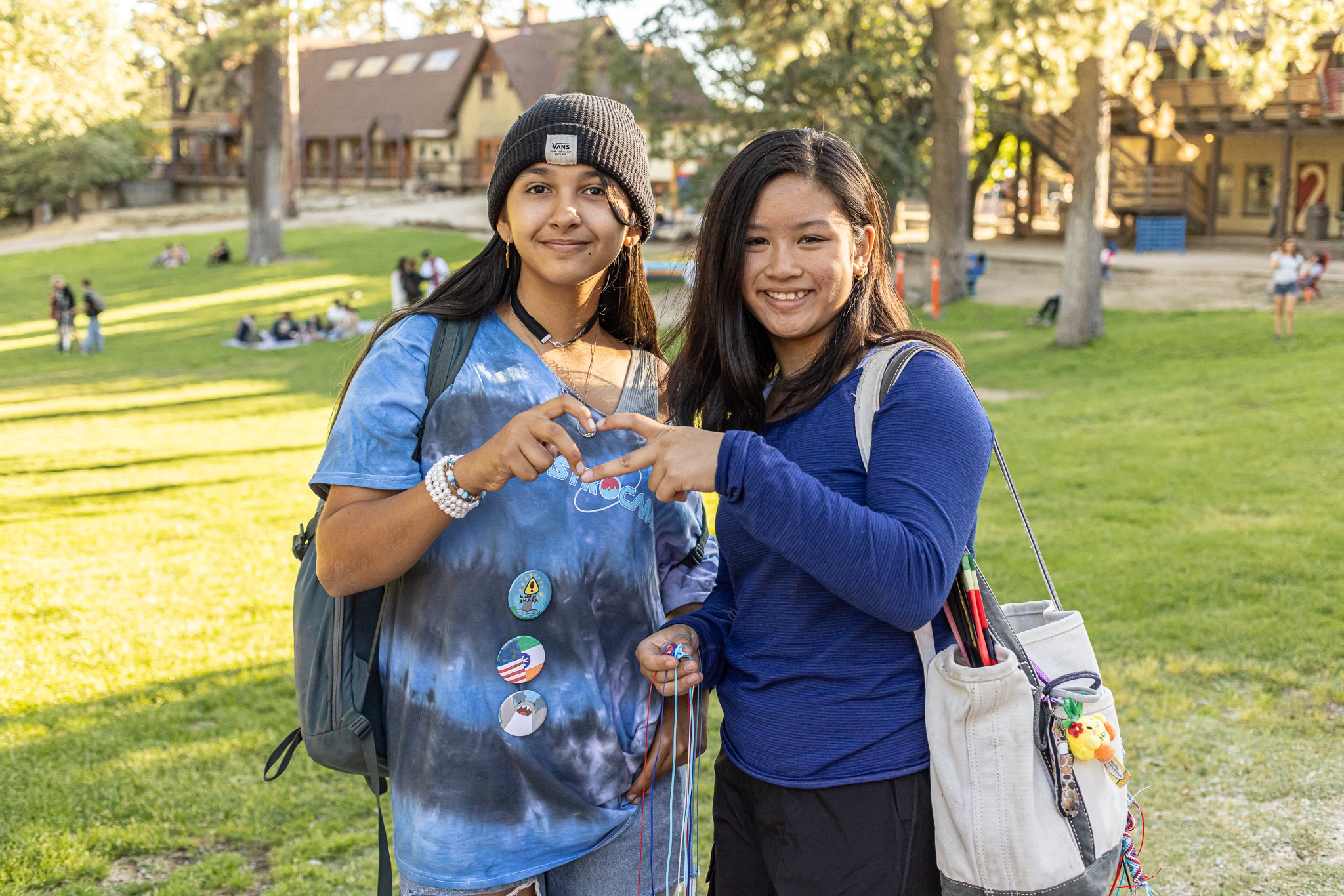The countdown to camp is an exciting time for campers and families alike. Parents are busy filling out forms, labeling clothes, and helping kids pack, while campers are imagining adventures on the ropes course, new friendships in the cabin, and nights under the stars.
But along with the excitement often comes something else: nerves. It’s normal for children—especially first-time campers—to wonder:
- Will I make friends?
- What if I can’t do the activities?
- What happens if I miss home?
The good news? Confidence isn’t something kids just “have” or “don’t have.” It’s something that can be learned and created. And as a parent, you play a huge role in giving your child the tools and mindset to step into camp feeling capable and excited.
This guide will help you build your child’s confidence before camp begins, so they arrive ready to thrive.
Why Confidence Matters at Camp
Confidence doesn’t mean being the loudest kid in the group or never feeling nervous. It means believing in yourself enough to take risks, try new things, and bounce back when challenges arise.
At camp, kids face dozens of new experiences every day—some adventurous (like ziplines and mountain biking), some creative (like ceramics and improv), and some social (like finding a seat in the dining hall). With confidence, campers don’t just survive these moments—they grow from them.
Research on experiential learning shows that children who practice independence and problem-solving in supportive environments develop stronger resilience, creativity, and adaptability (Frontiers in Psychology, 2021). In other words: the confidence kids gain at camp goes home with them, shaping how they approach school, friendships, and family life.
Tip 1: Talk About What to Expect
Uncertainty fuels anxiety. One of the most powerful ways to build confidence is simply to paint a clear picture of what camp will look like.
Explain the basics:
- They’ll live in cabins with other campers their age.
- Meals are shared, and counselors sit with the group.
- Days are filled with structured activities and some free choice time.
- Counselors and staff are always nearby to help.
You don’t have to rehearse every detail—just give enough information for your child to imagine themselves there. Framing camp as an adventure rather than an unknown helps them step into the experience with anticipation instead of fear.
Tip 2: Build Independence in Small Steps
One of the best ways to prepare kids for camp is to give them small opportunities for independence at home. Simple skills add up to big confidence:
- Packing practice: Let your child help pack their duffel bag. Show them where things go and let them take ownership of folding clothes and choosing outfits.
- Daily routines: Encourage them to make their bed, organize their backpack, or handle their toiletries. These little tasks build self-reliance.
- Decision-making: Give choices—what to wear, what to bring to a picnic, or how to spend free time. The more practice kids get making decisions, the more prepared they are to do so at camp.
When kids realize, I can handle this on my own, they arrive at camp with confidence already in place.
Tip 3: Practice Social Skills
Meeting new people is exciting—but it can also feel daunting. Role-play simple social strategies with your child, such as:
- Introducing themselves: “Hi, I’m Sam. Want to play cards?”
- Asking to join in: “Can I sit with you guys?”
- Including others: “Do you want to come too?”
These little scripts give kids tools to connect quickly. Even if your child is naturally shy, practicing a few “icebreaker” phrases helps them feel ready for that first day in the cabin or at a campfire.
Tip 4: Normalize Nerves and Homesickness
Even the most confident kids feel nervous sometimes—and that’s okay. Talk openly about nerves:
It’s normal to feel a little nervous about camp. Most kids do. But usually those feelings fade once you get into the fun.
Address homesickness, too. Reassure your child that missing home is natural, but remind them that it gets easier and they’ll have caring staff to talk to. Frame it as a challenge they can handle, not a problem to fear.
Tip 5: Frame Challenges as Opportunities
One of the best parts of camp is that kids get to try things they might never encounter at home: archery, welding, ropes courses, or cooking over a campfire. But new experiences often come with nerves.
Instead of telling your child, “Don’t worry, it will be easy,” frame it as an opportunity:
- “You might feel nervous on the climbing wall, but that’s how you discover how brave you are.”
- “You might not hit the bullseye in archery, but trying is what makes you stronger.”
Confidence comes from doing hard things, not avoiding them. Helping kids reframe challenges this way prepares them to face obstacles with courage.
Tip 6: Share Your Own Stories
Kids love hearing that adults were once nervous too. Share a memory of when you tried something new—a school play, a team sport, a summer camp of your own. Tell them how you felt and how you got through it.
Hearing that you once overcame uncertainty normalizes their feelings and shows that bravery is learned, not inborn.
Tip 7: Connect Confidence to Community
Confidence doesn’t grow in isolation—it grows in connection. Remind your child that camp is a place where everyone is trying new things, and counselors and peers will be cheering them on.
Talk about how they can support others too: encouraging a cabinmate on the ropes course or clapping for a friend in improv. Helping others builds their own sense of belonging and pride.
Tip 8: Keep Goodbyes Short and Positive
When drop-off day comes, confidence often wavers—for both kids and parents. The best gift you can give is a calm, positive goodbye.
Keep it short, avoid lingering, and remind them:
You’re ready for this. I can’t wait to hear all your stories.
A confident sendoff sets the tone for the adventure ahead.
Final Thought: Confidence That Lasts
Camp is designed to stretch kids in the best possible ways—socially, emotionally, and physically. With your support before camp begins, your child can arrive ready to embrace every opportunity.
Confidence doesn’t mean never feeling nervous. It means trusting that you can handle what comes your way. And once your child sees themselves thrive at camp, that confidence will carry into school, friendships, and every new adventure ahead
Ready to help your child build confidence that lasts a lifetime? AstroCamp’s summer sessions combine STEM exploration, outdoor adventure, and supportive friendships to give kids the courage to grow. Spots fill quickly, so don’t wait—explore dates and rates and reserve your camper’s spot today.

